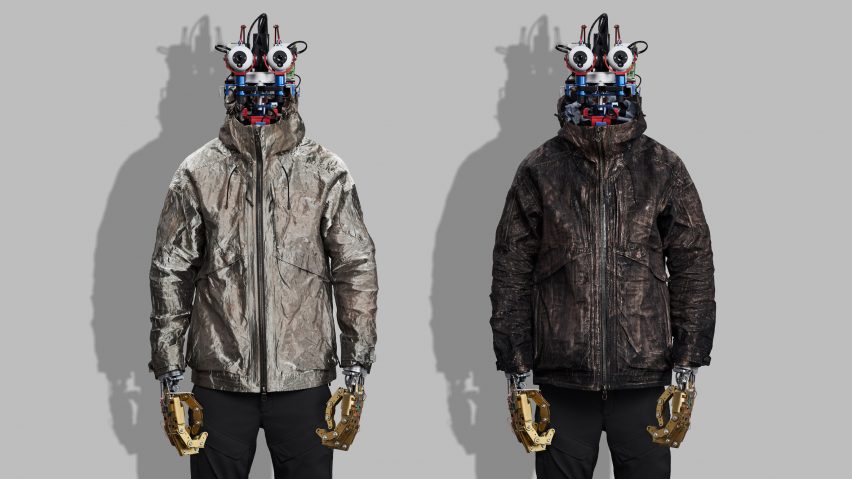
Vollebak weaves seven miles of copper into virus-killing Full Metal Jacket
Clothing company Vollebak has made its Full Metal Jacket from copper as the first step in developing intelligent and disease-resistant clothing in light of the coronavirus pandemic.
Each Full Metal Jacket is made from 65 per cent copper and incorporates around seven miles (11 kilometres) of the metal, which is known for is virus-killing qualities.
Vollebak created the jacket to demonstrate the potential of copper to be used for making clothing that would be resilient to viruses including the coronavirus.

"When Covid-19 hit we were already working on the future of intelligent, disease-resistant clothing and we'd chosen copper as a natural first building block," said Steve Tidball, co-founder of Vollebak.
"This first concept is focused on proving it's possible to make pieces of clothing almost entirely out of copper," he told Dezeen. "Now we've done that we can start exploring what form they take and what function they can have."
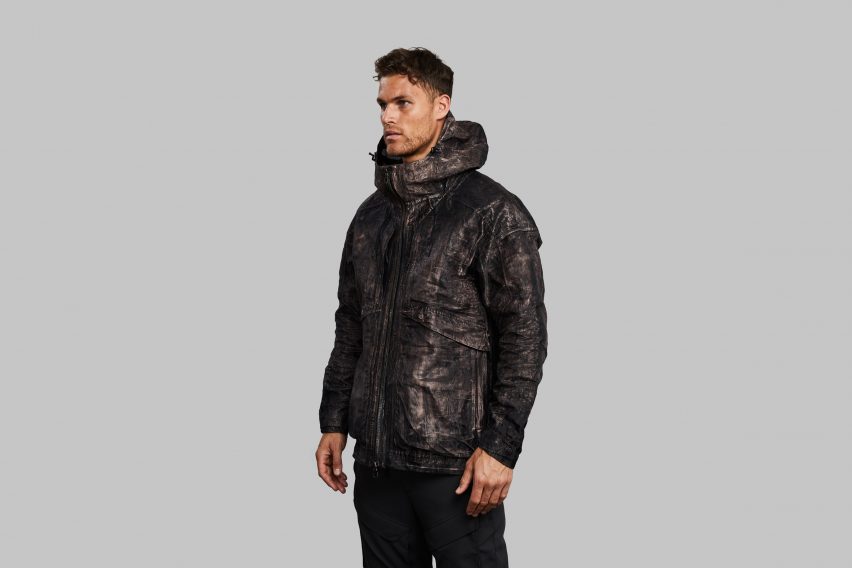
Vollebak focused on copper due to its antimicrobial qualities, as a wide range of harmful microbes are killed when they come in contact with the material.
"We know that copper has exceptional antimicrobial properties which means bacteria and viruses die when they make contact with it," explained Tidball.
"The copper releases electrically charged ions which first make it difficult for a microbe to breathe, before punching holes in its outer membrane, moving in and completely wiping out its DNA, preventing it from developing any future resistance."
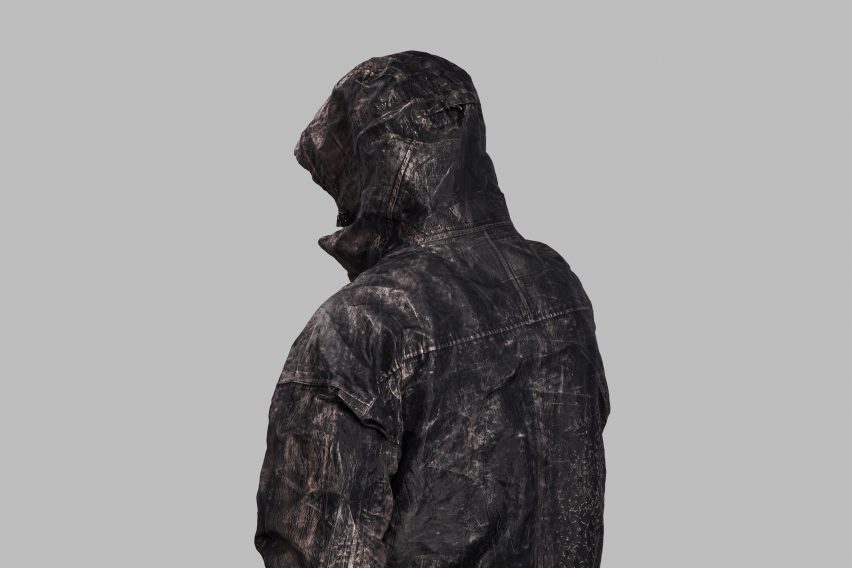
The company envisions the jacket as being the first step in its development of antimicrobial clothing and created the coat to show that the material could be used to make clothing.
"So really we're still in phase one, which is proving the viability of making clothing almost entirely out of copper," said Tidball. "Phase two is starting to test what it is capable of, and that's what we're going to look at now."
"Ultimately we're focused on the future of clothing over the next century," he continued. "So we really consider disease-resistant clothing a long-term ambition vs a short term solution."
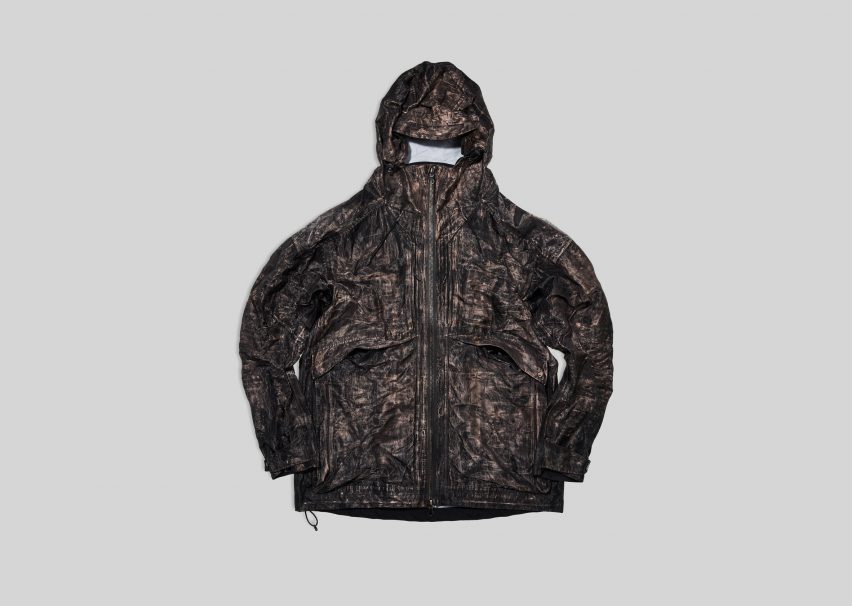
Creating the jacket from copper was challenging as metal is rarely used in this quantity in fashion. To transform the copper into useable fabric Vollebak laminated the metal thread with a waterproof and breathable membrane called c_change.
"There are a lot of reasons metal is not widely used in clothing," explained Tidball.
"It's a really expensive material, it has no real precedent in clothing beyond suits of armour, it's far more challenging to work with than something like cotton or polyester, and there's no established supply chain."
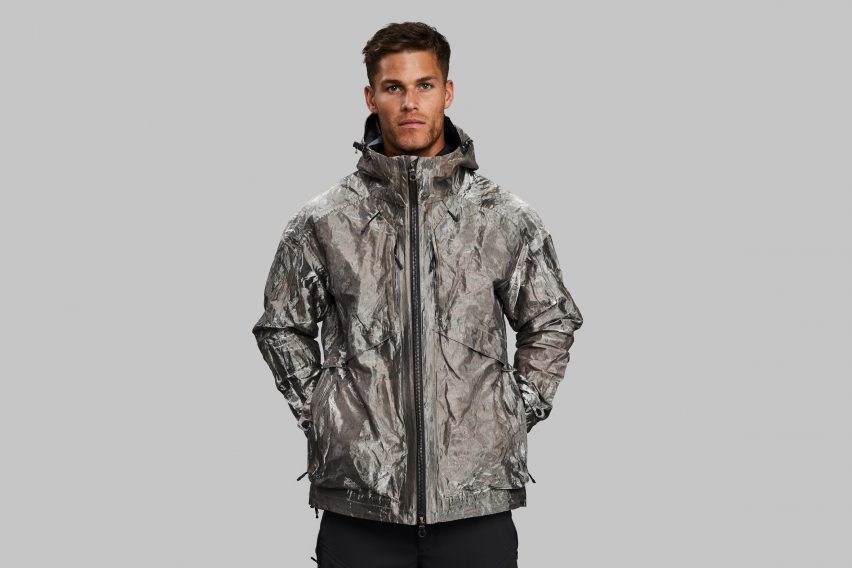
Although the coat, which is available in black and silver, is made from metal the company is certain that wearing the jacket does not feel like wearing a suit of armour, and in addition to its antimicrobial functions well as an everyday coat.
"You'd never know the jacket was made out of metal just by touching it," said Tidball. "And it's only under a microscope you can see the individual copper strands running through every jacket."
"The copper is soft and malleable and the jacket is highly waterproof, windproof and breathable, and comes with a fleece lined neck and pockets, making it a perfect everyday technical jacket," he continued.
"The only thing that will give away the fact it's made of metal is what it looks like."
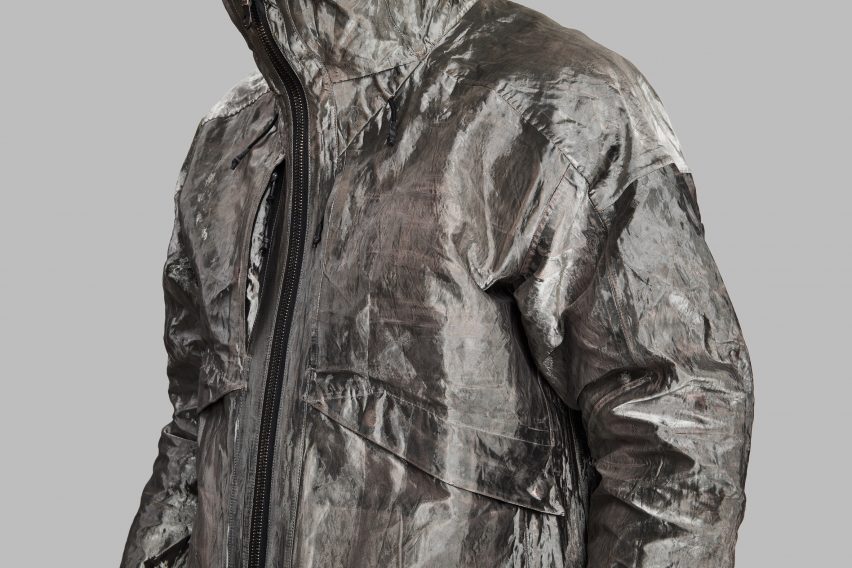
Vollebak believes that copper could be one of the materials used to make intelligent clothing in the future. However, we will not all be wearing copper in the near future.
"The evolution of copper clothing will be measured in years and decades not week or months, and that's because we're working with the timelines of innovation, and not the timelines of fashion," said Tidball.
"Over the next 10 to 10,000 years clothing has the potential to help us become stronger and faster and even live longer."
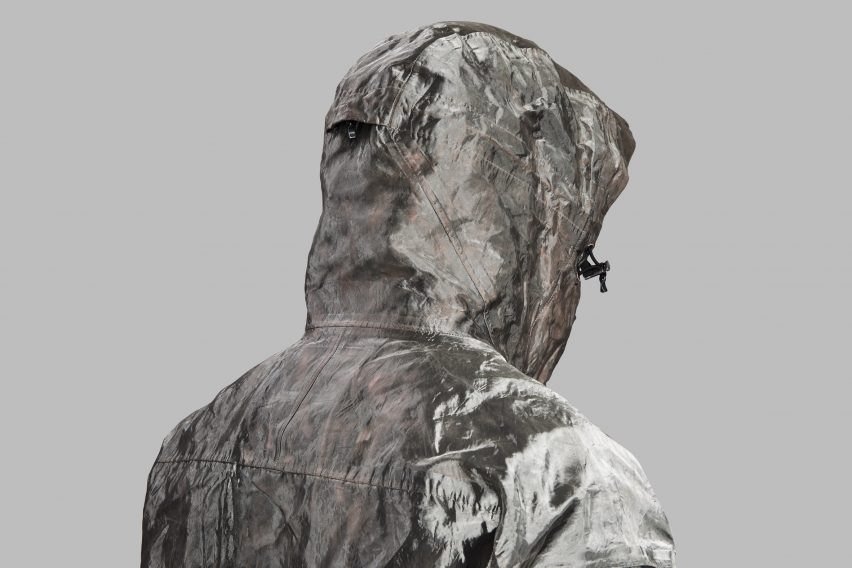
Alongside its virus-killing properties, copper is conductive meaning that is has potential to be used in a variety of ways in the future.
"Everything from exoskeletons to integrated monitoring and intelligence will require power distribution," explained Tidball. "And that's why we consider making clothes out of naturally conductive materials as the first stepping stone towards intelligent clothing."
"You can think of copper as a platform on top of which other innovation can be added – a bit like an operating system in a computer," he continued.
"We wanted to see whether it was actually possible to start make clothing almost entirely out of copper – because you can't wear a theory."
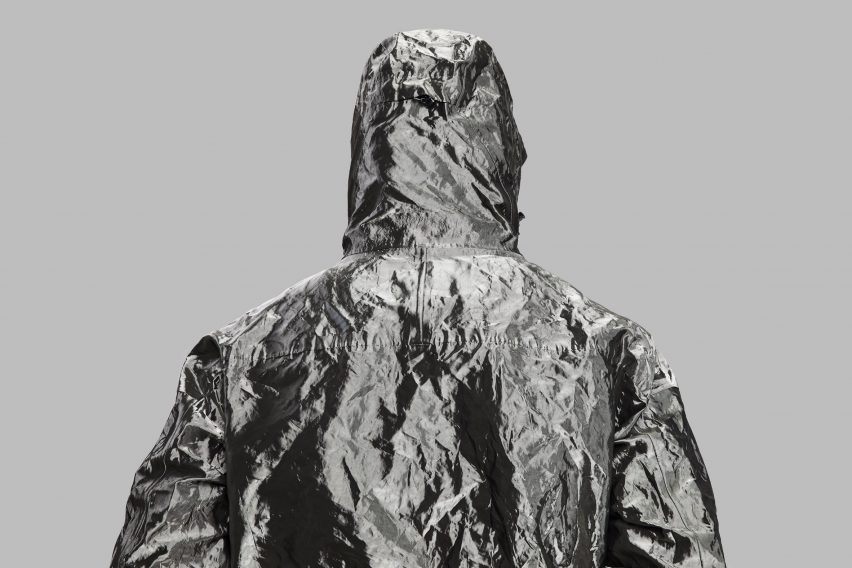
The Full Metal Jacket is the latest piece of clothing that uses experimental experimental materials from Vollebak, which Steve Tidball established in 2015 with his twin brother Nick.
The company previously made the first coat from graphene and made a near-indestructible jacket from Dyneema – a fibre that is 15 times stronger than steel.